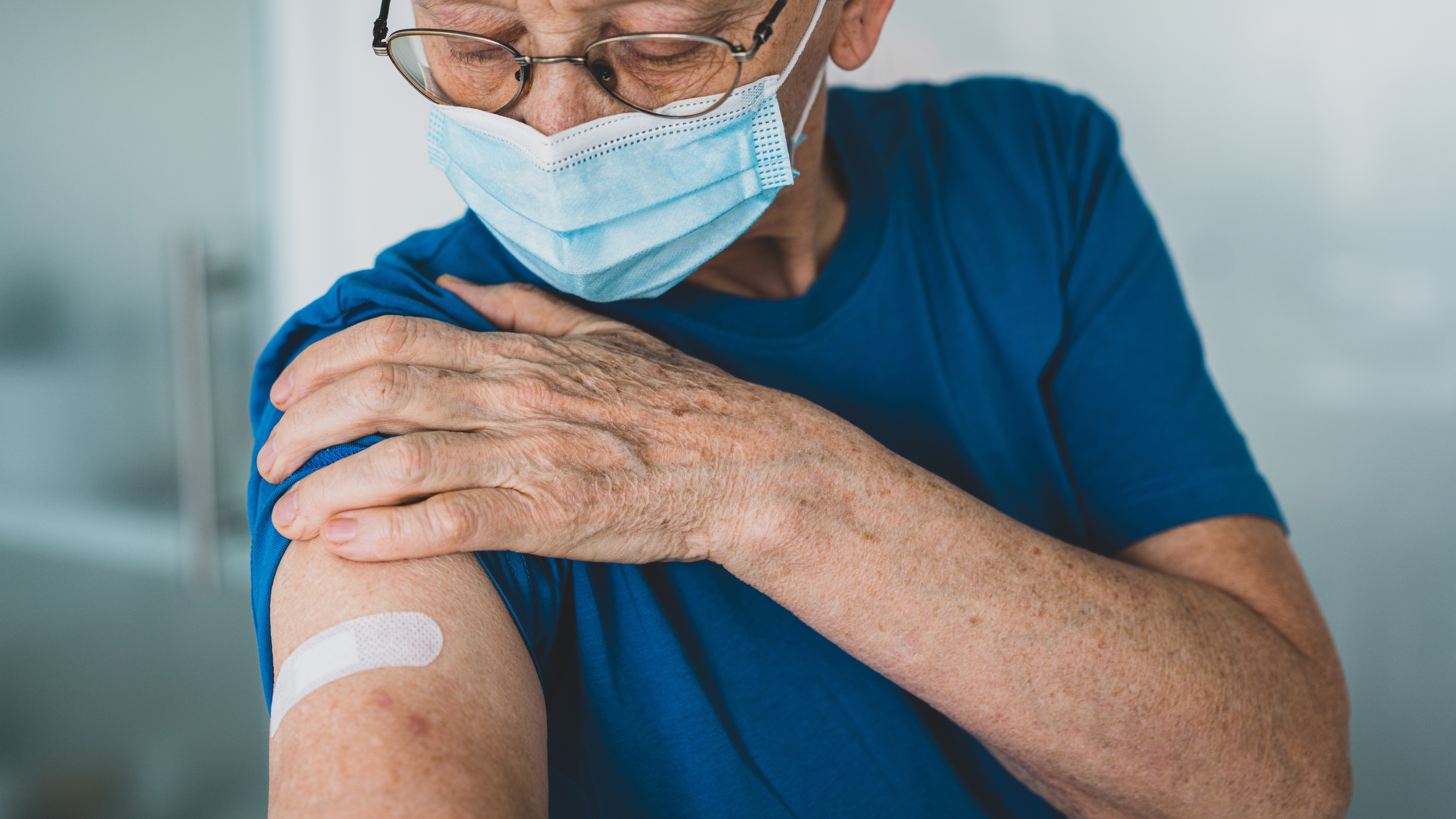Moderna says its RSV vaccine is 84% effective in older adults
Moderna announced positive results from its late-stage RSV vaccine trial in older adults.

Moderna's experimental respiratory syncytial virus (RSV) vaccine was about 84% effective at protecting older adults from lower respiratory tract disease in a late-stage trial, the drugmaker announced Tuesday (Jan. 17).
Moderna has yet to release the full trial results, but based on the company's analyses, it plans to submit the vaccine for Food and Drug Administration approval "in the first half of 2023," the company announced. Separately, the same vaccine is also being tested in children in an ongoing early-stage trial, the statement notes.
RSV most often causes mild, cold-like illnesses, but it can cause severe disease in infants, young children with certain medical conditions, and adults ages 65 and older, especially those with weakened immune systems or chronic heart or lung disease, according to the Centers for Disease Control and Prevention. There is no approved vaccine to prevent RSV, although several pharmaceutical companies are in the midst of late-stage trials testing vaccines in these high-risk groups.
Like Moderna's COVID-19 vaccines, the company's RSV vaccine contains messenger RNA (mRNA), a genetic molecule that instructs the body's cells to build specific proteins. In this case, the mRNA contains the blueprints for an "F glycoprotein," which RSV uses to break into cells; these proteins are locked into the shape they adopt just before fusing to their cellular victims.
Related: New RSV vaccine given in pregnancy protects newborns from illness, Pfizer says
Moderna's ongoing late-stage trial includes about 37,000 adults ages 60 and older in 22 countries, including the U.S. The newly released data highlights the 64 cases of lower respiratory tract disease — infections that affect the lungs and airways below the "voicebox" — that have occurred within this cohort so far.
All of the cases involved at least two symptoms of lower respiratory tract disease, such as cough and fever, and of these, 55 occurred in the placebo group and nine occurred in the vaccinated group. 20 cases involved three or more symptoms; 17 cases were in the placebo group, and three were in the vaccinated group.
Get the world’s most fascinating discoveries delivered straight to your inbox.
Based on these numbers, the vaccine was 83.7% effective against lower respiratory tract disease involving two or more symptoms and 82.4% effective against disease involving three or more symptoms. "The trial is ongoing, and additional efficacy analyses are planned as cases accrue, including for severe RSV," Moderna's statement reads.
No safety concerns arose in the trial; the most common side effects of vaccination were pain at the injection site, fatigue, headache, muscle aches and joint stiffness. "Safety and tolerability will continue to be followed in this ongoing study," the Moderna statement reads.
"Today's results represent an important step forward in preventing lower respiratory disease due to RSV in adults 60 years of age and older," Stéphane Bancel, Moderna's CEO, said in the statement. "We look forward to publishing the full data set and sharing the results at an upcoming infectious disease medical conference."

Nicoletta Lanese is the health channel editor at Live Science and was previously a news editor and staff writer at the site. She holds a graduate certificate in science communication from UC Santa Cruz and degrees in neuroscience and dance from the University of Florida. Her work has appeared in The Scientist, Science News, the Mercury News, Mongabay and Stanford Medicine Magazine, among other outlets. Based in NYC, she also remains heavily involved in dance and performs in local choreographers' work.
 Live Science Plus
Live Science Plus





